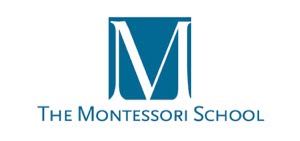Maria Montessori once said: “Education is a natural process carried out by the child and not acquired by listening to words, but by experiences in the environment.”
Here at The Montessori School, we want to produce students who are engaged at a much deeper, more natural level than can be measured by the established model of purely academic standards. That’s why we work to facilitate productive environments for learning, rather than requiring strict attention to lectures. And that’s also why we believe that while academic subjects are important, much more is required to facilitate life learners who are:
- Curious in their growth
- Proactive in their relationships
- Engaged in service to their communities
In order to be a school that fosters this kind of growth in each child, we must be a school that utilizes a truly comprehensive curriculum.
In an effort to remain true to Montessori’s philosophy as well as to meet the requirements of Pennsylvania’s academic standards, we implement the authentic Montessori scope and sequence of curriculum in our classrooms. This curriculum allows our teachers to encourage age-appropriate learning and skill development across disciplines, all while empowering the students to own their development with independence and pride.
Our curriculum structure helps us to accomplish what Maria Montessori described as the greatest duty of every educator: “To stir up life, but leave it free to develop.”
What is a Comprehensive Curriculum?
If you’re wondering what we mean by this term, you’re not alone. It’s one of the most frequently asked questions we receive from potential families and those researching the Montessori educational philosophy.
- Is organized according to the developmental stages in a child’s life: An effective curriculum is one that optimizes each learning stage by creating an environment for growth that’s natural to each stage of the child’s development.
- Allows for student-led learning: The role of the teacher in the Montessori classroom is to guide learning. We recognize that students are capable of initiating their own learning. The result is a high degree of engagement and concentration.
- Emphasizes the interconnectedness of all disciplines: Students are encouraged to connect ideas and skill sets across a wide variety of subjects, often learning many different ideas within one, unified unit or project.
- Encourages hands-on learning: Our authentic comprehensive curriculum utilizes extensive hands-on materials, honoring Dr. Montessori’s idea that, “The hands are the instruments of man’s intelligence.”
- Recognizes the value of non “academic” subjects: While we certainly want our students to excel in math, science, language, etc., we also guide them in their development of social skills, empathy, and emotional intelligence.
As a school, our mission is to encourage students to grow in self-confidence, leadership and respect for self and others. We believe that our comprehensive curriculum helps achieve that mission.
If you have questions about Montessori methodology, please give us a call at 215-542-0740 or request more information right on our website! We look forward to speaking with you.



Comments
Post a Comment